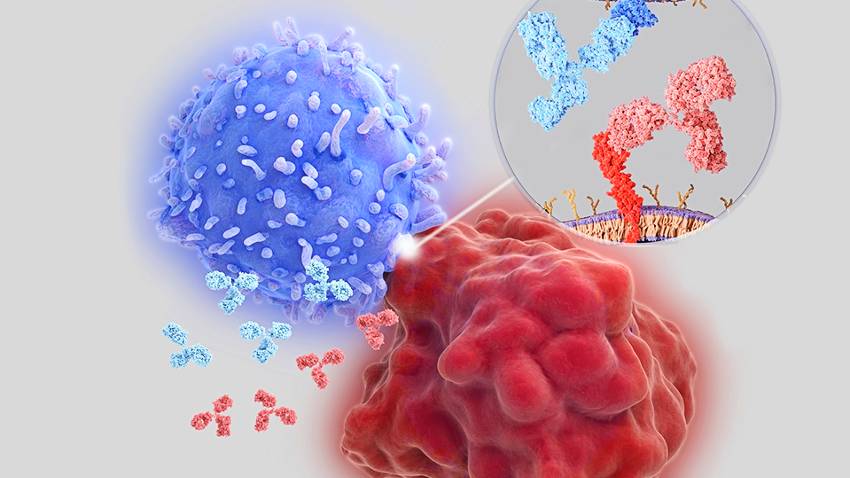Summary: A landmark 10-year study reveals that about half of metastatic melanoma patients treated with a combination of immune checkpoint inhibitors survive cancer-free for a decade or more.
Estimated reading time: 5 minutes
A new international trial has provided new hope for patients with metastatic melanoma, a condition once considered nearly universally fatal. The CheckMate 067 trial, which followed 945 patients across 21 countries, has demonstrated that a combination of two immunotherapy drugs can dramatically improve long-term survival rates.
Dr. Jedd Wolchok, first author of the study and Meyer Director of the Sandra and Edward Meyer Cancer Center at Weill Cornell Medicine, stated: “This was a practice-changing trial. The median survival for this population is now a little over six years, and people who are free from cancer progression at three years have a high likelihood of remaining alive and disease-free at the 10-year time point.”
A Decade of Progress
In 2011, the median survival for patients with metastatic melanoma was a mere six and a half months. The emergence of immune checkpoint inhibitors as a treatment option began to change this grim prognosis. The CheckMate 067 trial specifically examined the efficacy of nivolumab, either alone or in combination with ipilimumab, compared to ipilimumab alone.
The 10-year follow-up study, published in the New England Journal of Medicine, reveals striking results:
- Median overall survival was 71.9 months with nivolumab plus ipilimumab
- Nivolumab alone showed a median overall survival of 36.9 months
- Ipilimumab alone resulted in a median overall survival of 19.9 months
These findings represent a significant leap forward in cancer treatment, transforming metastatic melanoma from a nearly always fatal diagnosis to a potentially manageable long-term condition for many patients.
Safety and Long-Term Outlook
One of the key concerns with long-term immunotherapy treatment has been the potential for delayed side effects. However, the 10-year analysis found no new safety signals and no concerning indications of long-term toxicity. This reassuring data allows physicians to confidently discuss the long-term benefits and risks of immune checkpoint therapy with their patients.
Dr. F. Stephen Hodi, director of the Melanoma Center at Dana-Farber and co-senior author of the study, emphasized the impact of these findings: “After a decade of follow-up, we can now confidently tell our patients that there are treatments available with the potential to transform metastatic melanoma into a manageable, long-term condition, instilling confidence about the future.”
Implications for Patient Care
The long-term data from the CheckMate 067 trial not only provides hope for patients but also has practical implications for their care. The study suggests that patients who are doing well at three or five years are likely to continue doing well, which may allow for less frequent follow-up visits or tests.
For newly diagnosed patients, this data offers a ray of hope in what can be a very dark time. Dr. Wolchok noted, “We can now say half of patients treated with this combination therapy will live 10 years or longer without the concern of dying from metastatic melanoma.”
As we look to the future, this study marks a significant milestone in cancer treatment, offering a new standard of care and renewed hope for patients facing metastatic melanoma.
Quiz:
- What was the median survival for metastatic melanoma patients in 2011?
- What is the new median survival for patients treated with the combination of nivolumab and ipilimumab?
- What percentage of patients who were progression-free at 3 years remained alive and disease-free at 10 years with the combination therapy?
Answers:
- Six and a half months
- 71.9 months (about 6 years)
- 96%
Further Reading:
- National Cancer Institute: Immunotherapy for Cancer
- American Cancer Society: Melanoma Skin Cancer
- Cancer Research Institute: Immunotherapy for Melanoma
Glossary of Terms:
- Metastatic Melanoma: A type of skin cancer that has spread to other parts of the body.
- Immunotherapy: A type of cancer treatment that helps the immune system fight cancer.
- Immune Checkpoint Inhibitors: Drugs that block certain proteins made by some immune system cells, such as T cells, and some cancer cells.
- Nivolumab and Ipilimumab: Specific types of immune checkpoint inhibitors used in cancer treatment.
- Median Survival: The length of time from either diagnosis or treatment, for which half of the patients are still alive.
Enjoy this story? Get our newsletter! https://scienceblog.substack.com/


